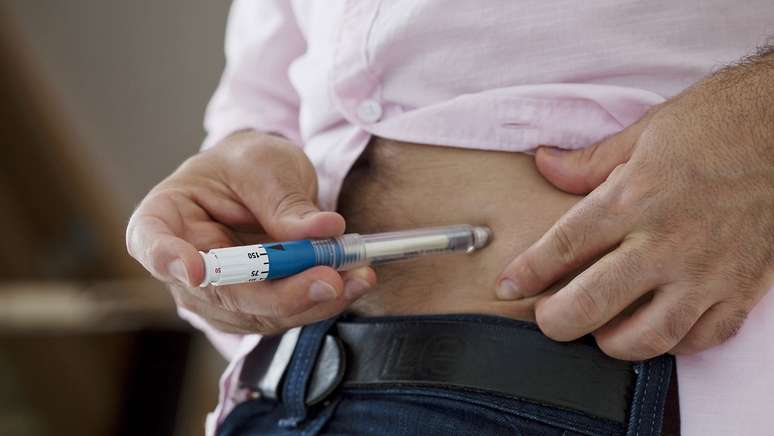Efsitora insulin has the potential to provide more stable glucose levels, reducing blood sugar variability throughout the week.
A new weekly insulin, efsitora alfa, has been shown to be as effective as daily injections in patients with type 2 diabetes. The discovery, disclosed by Eli Lilly and Company, promises to significantly improve patients’ quality of life by reducing the frequency of injections.
Clinical studies have shown that weekly insulin controlled glycated hemoglobin (HbA1C) non-inferiorly to daily insulin. This similar efficacy, combined with the convenience of fewer applications, represents a significant advance in diabetes management.
Promising results in clinical studies
Clinical trials of insulin efsitora alfa were divided into two Phase 3 studies: QWINT-1 and QWINT-3. The first evaluated weekly insulin in patients who had never used insulin, while the second focused on patients who were already using daily basal insulin.
In the QWINT-1 study, weekly insulin reduced HbA1c by 1.31%, while daily insulin glargine reduced it by 1.27%. In the QWINT-3 study, weekly insulin reduced HbA1c by 0.86%, compared with 0.75% for daily insulin degludec.
What are the benefits of weekly insulin?
The main advantage of weekly insulin is the reduction in the number of injections. While with daily insulin a patient would need 365 injections per year, with weekly insulin this number drops to only 52 injections. This simplicity is a game changer for many patients who have difficulty adhering to treatment due to the inconvenience and complexity of daily injections.
Second Louis the GreatSenior Director of Medical Area at Lilly Brasil, replacing daily injections with weekly injections maintains the same efficacy and safety profile. This may contribute to better adherence to treatment and, consequently, to an improvement in the quality of life of patients.
How were the clinical studies conducted?
The QWINT-1 and QWINT-3 clinical studies had a rigorous methodology to evaluate the efficacy and safety of insulin efsitor. QWINT-1 lasted 52 weeks and involved 796 participants who had not previously used insulin. They were randomized to receive weekly efsitor or daily insulin glargine.
The QWINT-3 study involved 986 participants, followed for 78 weeks. They were randomly assigned to receive weekly efsitor or daily insulin degludec. In both studies, the primary endpoint was to assess the efficacy of insulin at weeks 52 and 26, respectively.
What is effective insulin?
Insulin Efsitora is a weekly basal insulin, specifically developed for once-weekly subcutaneous administration. It has the potential to provide more stable glucose levels, reducing blood sugar variability throughout the week. It is in Phase 3 study for patients with type 1 and type 2 diabetes, having also shown promising results in studies such as QWINT-2 and QWINT-5.
In the QWINT-2 study, published in the New England Journal of Medicine, treatment with efsitora was compared to daily use of insulin degludec in patients with type 2 diabetes who had never used insulin. The study showed that efsitora helped these patients achieve glycated hemoglobin levels of less than 7%.
The QWINT-5 study, published in The Lancet, evaluated the use of efsitora in patients with type 1 diabetes who require multiple daily insulin injections. Efsitora reduced glycated haemoglobin by 0.53%, a result comparable to 0.59% for daily insulin degludec.
Source: Terra
Ben Stock is a lifestyle journalist and author at Gossipify. He writes about topics such as health, wellness, travel, food and home decor. He provides practical advice and inspiration to improve well-being, keeps readers up to date with latest lifestyle news and trends, known for his engaging writing style, in-depth analysis and unique perspectives.








